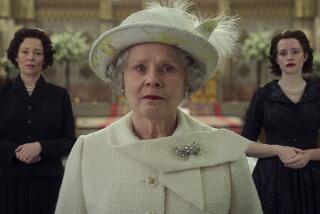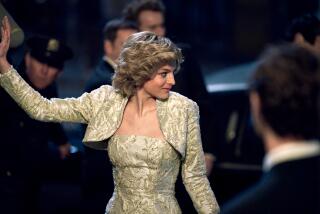A dated but not outdated ‘Death of a Princess’
When Saudi Arabia this year held municipal elections for the first time in four decades, women were barred from voting or running for office.
In a 4,500-word essay published in the (London) Guardian, feminist author Natasha Walter concluded recently that, “Since the fall of the Taliban in Afghanistan, there is no place in the world where women are more systematically deprived of freedom than they are in Saudi Arabia.”
While Walter’s absolutist view may be debatable, few in the West might disagree that the subservient role of women in Saudi Arabia is sharply at odds with that nation’s preferred self-image as a modern state dedicated to economic growth and regional leadership.
For the United States, the issue pits this nation’s dedication to global human rights against its desire to keep from angering the Saudi royal family by criticizing its maltreatment of women.
Twenty-five years ago, the clash between the image and the reality of Saudi society sparked an international furor with the broadcast of “Death of a Princess,” a television docudrama telling of the execution/murder of a married princess and her adulterous lover.
Pieced together by reporter-filmmaker Antony Thomas, “Death” was shown first in England. Because almost none of the sources would agree to go public, Thomas used the docudrama form to explain how he tracked down the story in London, Paris, Beirut, Riyadh and Jeddah.
When PBS announced plans to show “Death” as part of its World series, the oil hit the fan. The Saudi government protested. So did big-time PBS underwriter Mobil Oil, and various U.S. politicians.
PBS refused to bow to the pressure and “Death” was shown in May 1980. Tonight, as part of the Frontline series, “Death of a Princess” will be rebroadcast with an updated epilogue about how much, or little, things have changed for women in Saudi Arabia.
To be sure, “Death” shows its age.
The docudrama form has evolved since 1980, and this early effort has a certain staginess and slowness. Given the disrepute of journalism these days it is unclear how much of “how I broke the big story” the public will care to consume.
But the power of “Death” to shock remains undiluted.
The story of a free-spirited 19-year-old who refused to lie about her forbidden love affair is still gripping. The deceit and misdirection the journalist encounters in chasing the story heighten the sense of tragedy when he finally uncovers at least a portion of the truth.
Despite the journalist’s efforts, much about the princess and her lover remains opaque. One strength of “Death” is that it renders the sense of contradictions embedded in Saudi Arabia, or, by extension, the entire Arab world: so technologically modern yet so socially retrograde by most Western standards.
The prying journalist is told that the princess “committed a very grave crime against Islam. We are strict here. Not like your country, where burglars can come into your home and kill you and rob you and get the lightest punishment.”
In the epilogue, Edward Walker, a longtime U.S. diplomat in the Middle East, urges tolerance for the Saudi government. If women had been allowed to vote, he says, it could have created a backlash against the government among religious conservatives.
Walker says that the crown prince promised him women will be allowed to vote next time. “He thought you had to take this thing one step at a time,” Walker says.
Arab journalist Mona Eltahawy is not so forgiving or upbeat. In a paradoxical way, modernity is the enemy of women’s equality in Saudi Arabia, she says.
“The more open and modernized you become, the tighter you must hold onto women in particular and children to show what a good Saudi you are or what a good Muslim you are,” she says.
“And unfortunately, it’s the women who pay.”
*
‘Frontline’
Death of a Princess
Where: KCET
When: 9-11 tonight
Ratings: Not rated
Executive producers David Fanning, Michael Sullivan. Writers David Fanning, Antony Thomas.
More to Read
Sign up for Essential California
The most important California stories and recommendations in your inbox every morning.
You may occasionally receive promotional content from the Los Angeles Times.










